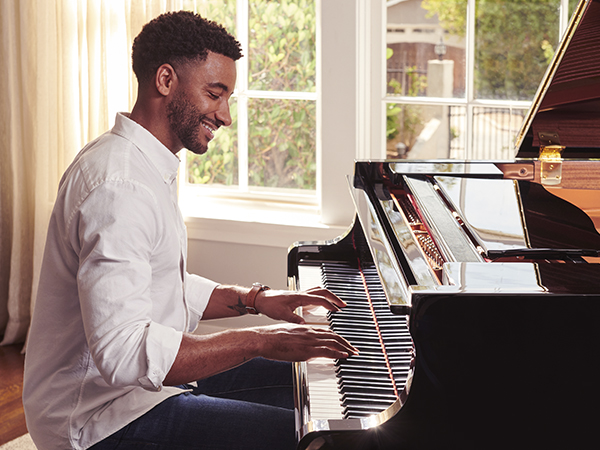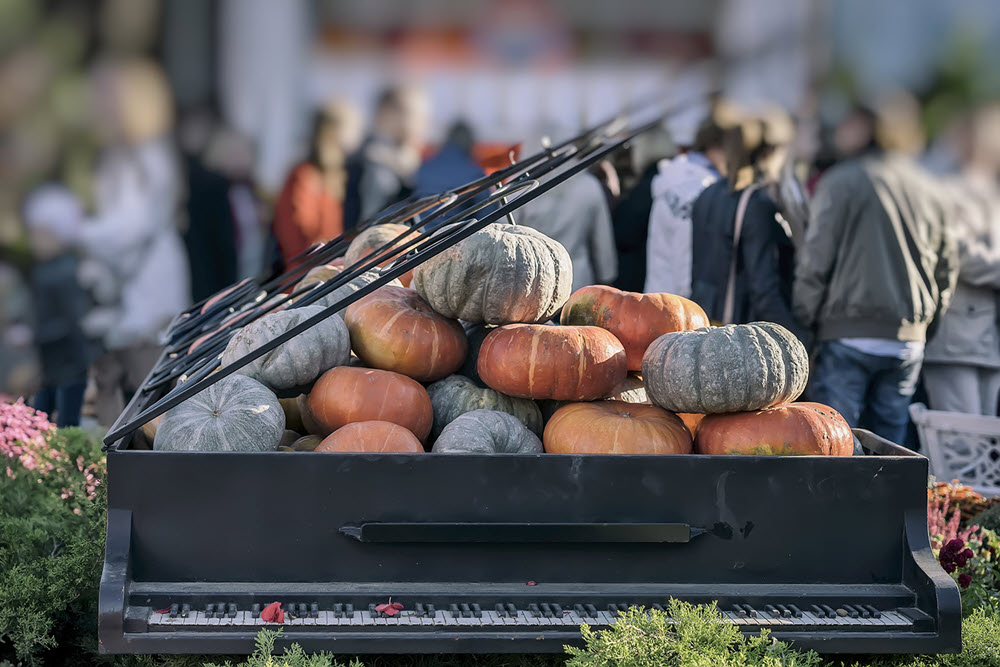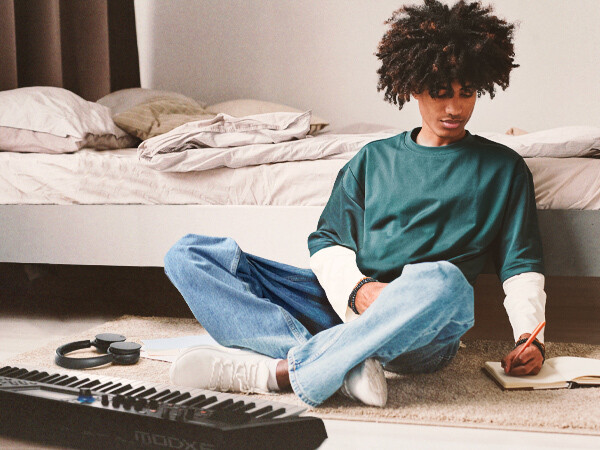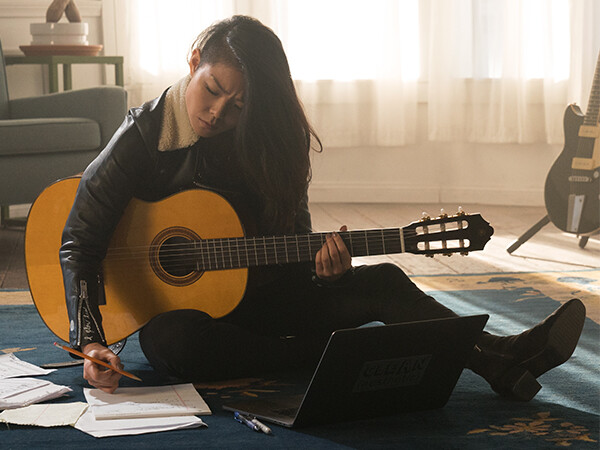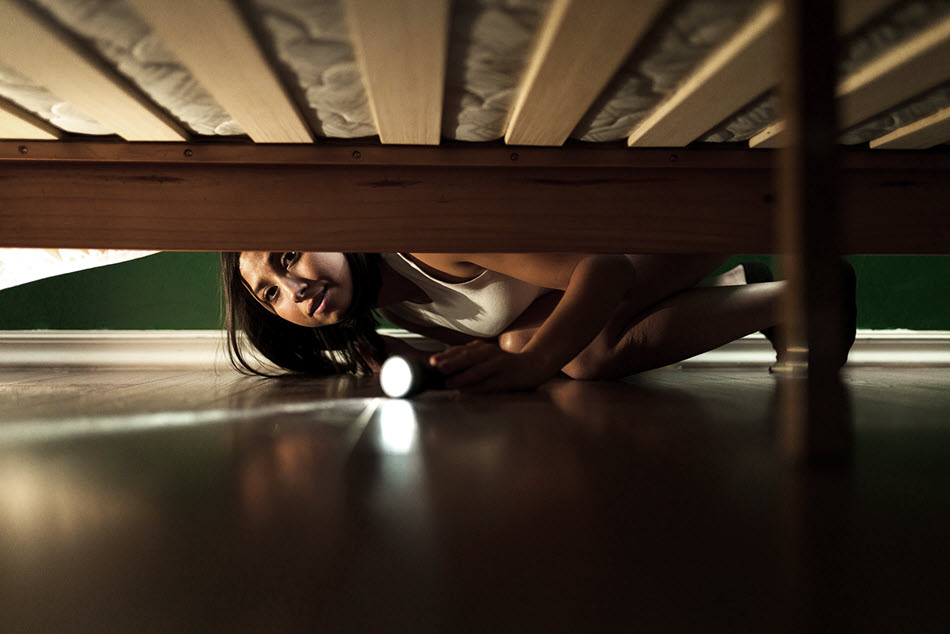Write Like Nobody’s Listening
Dancing alone in a room and the songwriting equivalent.
You’re probably familiar with the expression “dance like nobody’s watching.” It suggests that we’re less inhibited and self-conscious if nobody actually sees us dancing … which makes us more inclined to dance.
The idea (attributed to Mark Twain or Satchel Paige or William Purkey or Susanna Clark or Richard Leigh, depending on who you ask or what Google turns up), has been worked into many a contemporary pop song (even serving as the title of a 2020 single from rapper Iggy Azalea and singer-songwriter Tinashe), and has been used as the name of both EPs and television episodes, so it must have hit a universal nerve.
I recognize this in myself. I enjoy dancing, but my moves are limited and if I felt I had to impress someone with any semblance of sophistication, grace or agility, I might decline. I have, however, been known to try some fancy choreography alone in a room.
I’m of the opinion that this theory applies to composing music as well: Writing a song is a lot easier if nobody is witnessing you in the process.
But not as many of us are asked to conjure up some original music as we are asked to dance. So, as an experiment, I thought I’d do just that. After all, if we can successfully inspire someone to embrace a new creative outlet, it would make both parties happy. And thankful. With turkey-season almost upon us, November seems like a good month to celebrate gratitude.
In my quest I approached a few friends who’ve never written a musical note or lyric and asked them if they’d be willing to try writing a song. And if they were, would they attempt to do so when no one was around? When no one was home. When the door was closed.
I promised they wouldn’t have to play their creation for me. In fact, we would make that a condition: Even if they wanted to play me their song, I would not listen to it. I felt that the notion that someone might form an opinion about their efforts could (or would) alter their experience, their comfort level, their motivation. I told them that I would, however, check in on them from time to time to see how it was going.
Not surprisingly, three different friends yielded three different results. A spectrum of connection.
Sara, who plays a bit of piano — just enough to accompany her singing voice — was a bust. Although she adores music (we’ve always enjoyed going to concerts together), she was not drawn to making music herself. She reported sitting in front of a piano and … nothing. No pull, no humor, no curiosity, no desire. She swears she didn’t feel self-conscious. She’d simply rather play a beloved classical piece she learned in middle school than write something herself. I accept that. Hey, songwriting is not for everyone. (I’m actually grateful for that because if it were, there’d be way too much competition. As if there wasn’t enough already!)
Aaron, who plays guitar but doesn’t write, agreed to give it a shot although he was sure that nothing impressive would transpire. He was wrong. Not ten minutes after picking up his guitar with the goal of coming up with a song, he reported stumbling on a hook, then some verses. In no time he found himself rocking out to what he called a “smash” that he planned on taking to his band so that they could learn and perform it. Unlike Sara, he was beside himself. Exuberant. Like a kid who just discovered candy. Understandably, this made my day. It was almost too easy.
But it was Paula’s experience that gave me the most gratification. Paula was hesitant at first to pick up her husband’s guitar, but she’s always had a creative spirit. She’s been dabbling in poetry for years and considered my challenge an opportunity to find a musical home for her prose, to get her words off the page.
She reported being slow to start, but the basic chord changes her husband showed her gave her hope and inspiration. Once she was able to flow through D – Em – A with some muscle memory, she noticed her energy shifting to her emotions — to the places where that strumming led her. Ideas began to flow. She opened her journal and implemented phrases and stanzas from her poetry. She found that she was able to articulate feelings she had about a falling out with a friend — feelings she hadn’t been able to sort out previously. In making the time to invite them in, and with just enough accompaniment to draw them out, she found answers and creative catharsis. Everything, in fact, that songwriting is supposed to do.
What’s more, Paula discovered that every time she took a break, the time it took to return to her guitar got shorter and shorter. She was eager to continue. And eventually she wrote what she considered her very first song. She told me she knew it wasn’t ready for prime time, that it wasn’t competitive or commercial. But nobody had to know that. Besides, that wasn’t the goal.
A few weeks later, Paula and I met for lunch and discussed the new love of her life: songwriting-in-private. She said that, in retrospect, the key to giving herself permission to try something new was the comfort of knowing no one was listening. No one was judging. No one was watching her dance.
You don’t have to be a professional musician to be a songwriter. After all, a songwriter is simply someone who writes songs. Not everyone who makes music needs do so for fame, notoriety, or to sustain a livelihood. In the best of all worlds, music is a means by which to explore your innermost feelings … without caring what anyone else thinks. Succeed in that, and you’ve truly experienced success.










